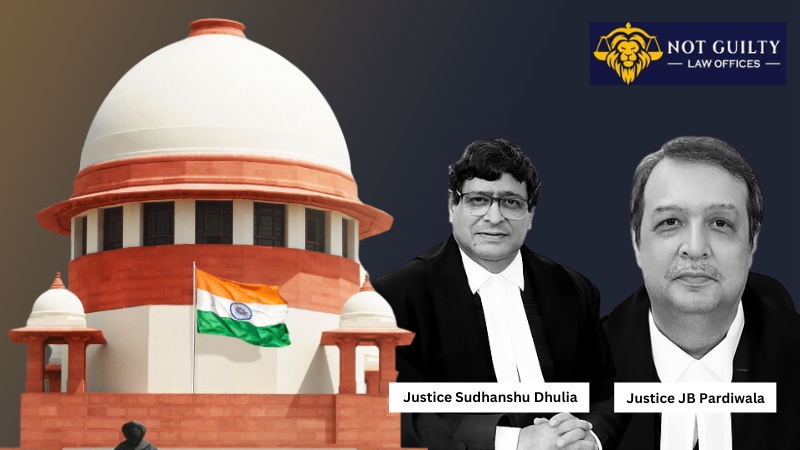Conviction for Dowry Death Under S.304B IPC Unsustainable Without Proof of Dowry Demand: Supreme Court.
The Supreme Court overturned the conviction for dowry death (under Section 304-B of IPC) after determining that the prosecution failed to establish that the deceased wife had been subjected to cruelty or harassment by her husband related to dowry demands shortly before her death.
The Court exonerated the husband, sister-in-law, and mother-in-law of the deceased, who had been sentenced to life imprisonment by the trial court, a decision upheld by the High Court.
In reversing the conviction, the Supreme Court emphasized that unless it is proven that the cruelty or harassment experienced by the deceased was directly connected to dowry demands, a conviction under Section 304-B of IPC cannot be sustained.
The bench, comprising Justices Sudhanshu Dhulia and JB Pardiwala, referenced the Rajinder Singh vs. State of Punjab (2015) judgment, which outlined the elements necessary for a conviction under Section 304B of IPC.
After reviewing the evidence, particularly the testimonies of the prosecution witnesses, the Court observed that “these witnesses did not state that such cruelty and harassment were related to dowry demands.”
“Regarding dowry demands, the witnesses made only general statements, which are insufficient to convict the appellants under Section 304B of IPC,” the court added.
The court noted that both the trial court and the High Court erred by presuming dowry death under Section 113B of the Indian Evidence Act, 1982.
“The trial court presumed under section 113B of the Evidence Act to convict the appellants under Section 304B of IPC. The High Court did not address whether the trial court was correct in relying on section 113B of the Evidence Act.”
The Court clarified that an unnatural death within seven years of marriage, occurring in the matrimonial home, does not suffice for a conviction under Sections 304B and 498A of IPC unless the prosecution proves that the deceased was subjected to cruelty related to dowry demands soon before her death (as referenced in Charan Singh @ Charanjit Singh v. State of Uttarakhand, 2023 LiveLaw SC 341).
“We conclude that this is not a case of dowry death under Section 304B of the Indian Penal Code. PW-1 and PW-3 merely stated that the deceased reported her torture. PW-4 (mother of the deceased) did not mention any dowry demands after marriage. Moreover, this witness claimed that appellant no. 2 assaulted her deceased daughter due to the deceased’s objections to appellant no. 2’s alleged affair. PW-16, the cousin of the deceased, testified in court almost a year after the testimonies of PW-1, 3, and 4, and his account of physical assault related to dowry demands is not credible. Considering these points, we find that the trial court erred in presuming under Section 113B of the Indian Evidence Act, despite the lack of established dowry demands,” the Court concluded.
While the charges of abetment to suicide under Section 306 of IPC and cruelty under Section 498A of IPC were substantiated against the husband, leading to the upholding of his conviction under these two provisions, the conviction under Section 304B of IPC was annulled as the prosecution failed to establish a case for dowry death. Consequently, for the offences under Sections 306 and 498A, the Court sentenced appellant No. 2 (husband) to three years of rigorous imprisonment and imposed a fine of Rs. 25,000 on each count.
Appearance:
For Appellant(s): Ms. Arundhati Katju, Adv.; Ms. Shristi Borthakur, Adv.; Ms. Ritika Meena, Adv.; Ms. Pinki Aggarwal, Adv.; Mr. Sailesh Kumar Gupta, Adv.; Mrs. Priya Puri, AOR.
For Respondent(s): Mr. Srisatya Mohanty, Adv.; Ms. Astha Sharma, AOR; Mr. Abhijit Pattanaik, Adv.
Case Title: CHABI KARMAKAR & ORS. Vs. THE STATE OF WEST BENGAL, CRIMINAL APPEAL NO. 1556 OF 2013
Citation: 2024 LiveLaw (SC) 679



